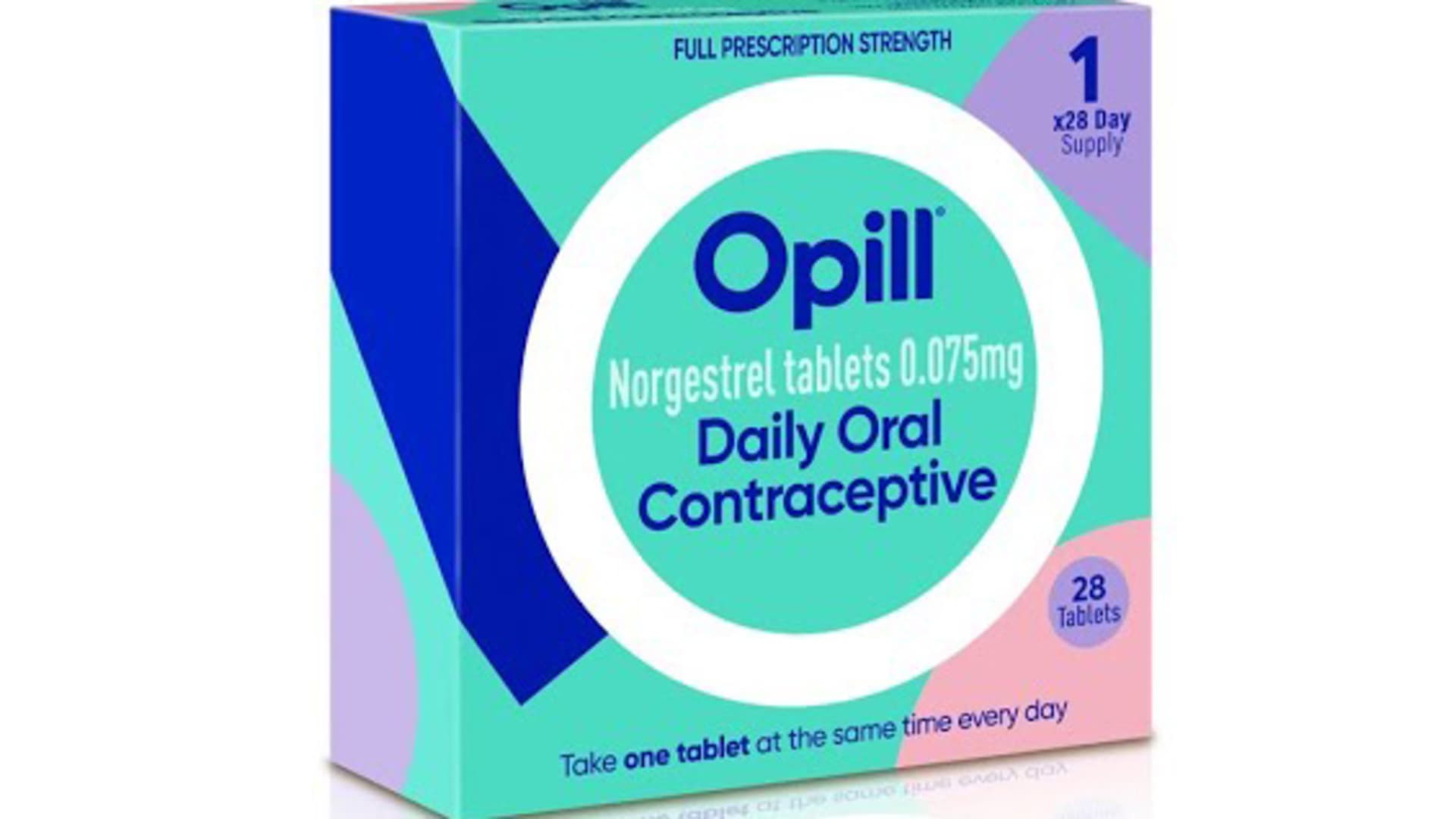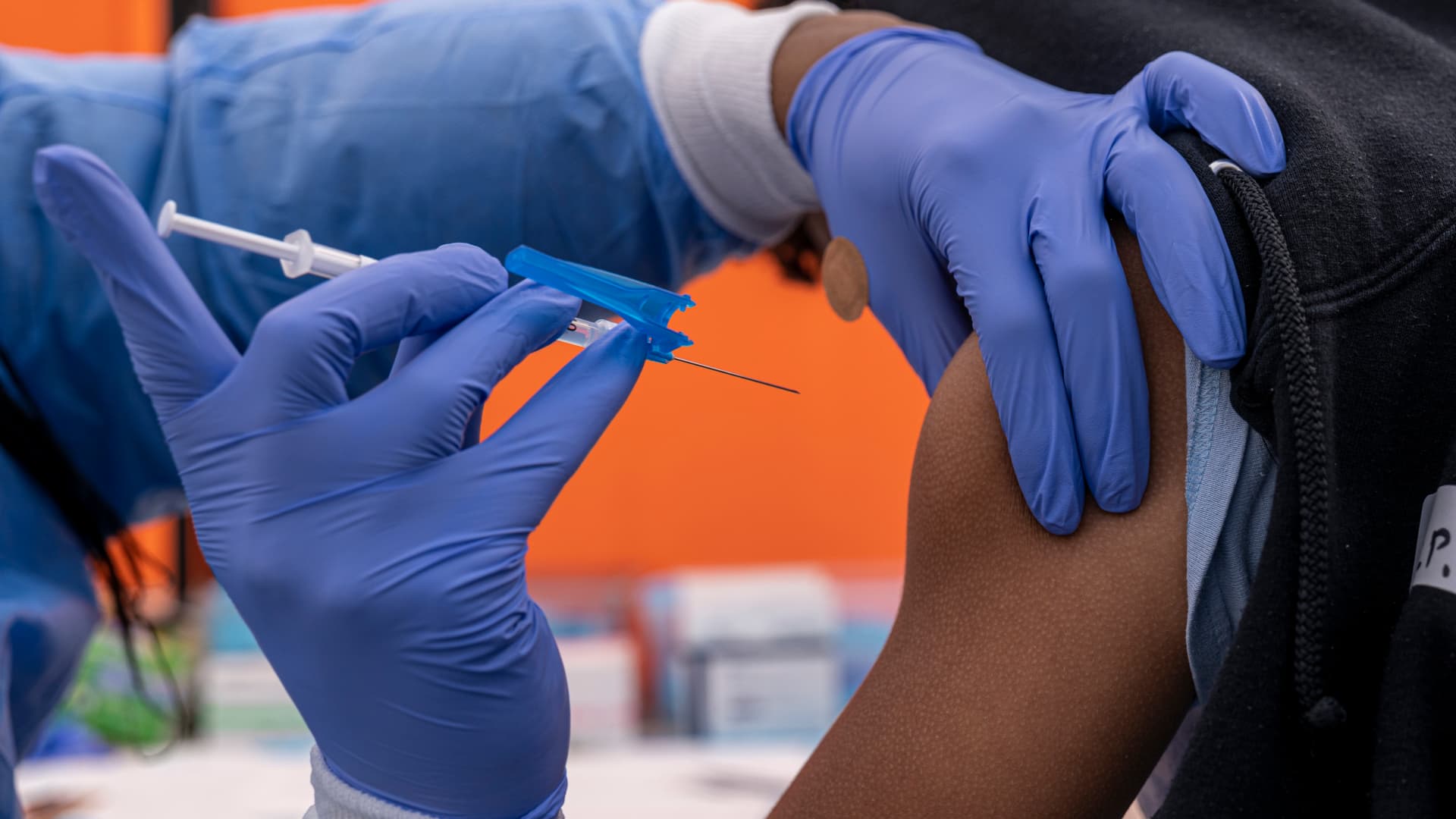FDA advisors recommend sale of birth control pill without a prescription
FDA scientists raised concerns about whether the general public will understand the drug label and use HRA Pharma's Opill in the right way.

HRA Pharma expects a final decision by the FDA this summer on its application for nonprescription sales of Opill, which is generically called norgestrel.
Source: Perrigo
A panel of experts who advise the U.S. Food and Drug Administration unanimously recommended Wednesday that the agency for the first time allow women to obtain a birth control pill without a prescription.
The panel had been asked whether the benefits of selling HRA Pharma's birth control pill Opill outweighed the risks of consumers improperly using the medication resulting in unintended pregnancy.
The FDA is not obligated to follow the recommendations of its independent advisors, all 17 of whom voted "yes" on the proposal after a two-day hearing.
But HRA Pharma expects a final decision by the FDA this summer on its application for nonprescription sales of Opill, which is generically called norgestrel. The Paris-based drugmaker is owned by Perrigo, a manufacturer of over-the-counter drugs.
Since they were approved in the United States more than 60 years ago, oral contraceptives have only been available to women with a prescription for their use. If the FDA approves HRA Pharma's application, women could obtain Opill without first having to visit a doctor or other health-care provider.
"The history of women's contraception is a struggle for women's control over their reproduction and we need to trust women," said Dr. Katalin Roth, a member of the FDA advisory panel and a professor of medicine at George Washington University.
"I urge the FDA to approve over-the-counter availability of Opill," Roth said, in explaining her vote in favor of HRA Pharma's application.
The FDA originally approved norgestrel in 1973 as a prescription drug, but the company stopped U.S. sales of the pill in 2005 for business reasons, according to the agency.
HRA Pharma updated the pill's label in 2017 in hopes of reintroducing the medication to the U.S. market, explicitly as an over-the-counter drug.
Medical associations such as the American College of Obstetricians and Gynecologists for years have urged over-the-counter sales of birth control pills be allowed.
More than 50 members of Congress in March 2022 called on FDA Commissioner Dr. Robert Califf to ensure the agency reviewed applications for over-the-counter birth control pills without delay.
"This is a critical issue for reproductive health, rights, and justice," the lawmakers wrote in a letter to Califf.
"Despite decades of proven safety and effectiveness, people still face immense barriers to getting birth control due to systemic inequities in our healthcare system."
Nearly half of all pregnancies in the U.S. were unintended in 2011, according to a New England Journal of Medicine study published in 2016.
According to that study, 75% of all pregnancies among girls 15 to 19 years old were unintended.
HRA Pharma submitted its application to the FDA last summer, two weeks after the Supreme Court abolished federal abortion rights by overturning its landmark 1973 Roe v. Wade decision.
The fall of Roe v. Wade led some states to ban abortion or place tight restrictions on the procedure. It also led to legal efforts to pull abortion medication from the U.S. market.
Shrinking access to abortion across the U.S. in turn sparked renewed calls for expanded access to birth control to prevent unwanted pregnancies.
FDA questions company data
Norgestrel contains a hormone called progestin that prevents pregnancy by thickening the cervix mucus to block sperm from reaching and fertilizing an egg. The pill is meant to be taken at the same time daily.
Progestin-only pills typically are used by women who do not want to take the more common combination pills that contain progestin and estrogen for health reasons.
Progestin-only pills are an effective birth control method, but it's crucial to take the pill at the same time every day, according to the American College of Obstetricians and Gynecologists.
In typical real-word use, about 9 in 100 women will get pregnant in the first year taking the pill, according to the medical association. When the patient never forgets to take a pill, fewer than 1 in 100 women get pregnant during the first year.
But FDA scientists raised concerns about whether the public, particularly adolescents and people with lower literacy levels, will understand norgestrel's drug label and use the medication the right way.
The FDA also found one-third of participants in HRA Pharma's study reported taking more norgestrel pills than were actually dispensed.
Dr. Theresa Michele, head of the FDA's nonprescription drug division, said these errors call into question whether other data in the study is reliable.
"I can't think of a study that has 30% invalid data," Michele told the committee Wednesday. "That really just does not occur in any kind of a study, much less a consumer study of this nature, so it's really very extraordinary."
"We went back and asked the sponsor to look for a root cause of this and they didn't find one," Michele said.
Dr. Karen Murry, a deputy director of the FDA's nonprescription drug office, said the agency understands the importance of increased access to effective contraception for women. But Murry said HRA Pharma submitted a study that was difficult to interpret.
"And so, the FDA has been put in a very difficult position of trying to determine whether it is likely that women will use this product safely and effectively in the nonprescription setting," Murry said.
Kathryn Curtis, a scientist at the Centers for Disease Control and Prevention and an FDA committee member, said even with the study's data problems, the benefits of over-the-counter birth control clearly outweigh the risks.
'Let's not hold women hostage'
The FDA was also worried some women with a history of breast cancer in HRA Pharma's drug label comprehension study chose to take norgestrel despite a warning they should not. Progestin can increase the risk of breast cancer returning.
The agency's scientists were also concerned some women with unexplained vaginal bleeding between menstrual cycles chose to take norgestrel without consulting a doctor first.
Dr. Pamela Goodwin, an oncologist at the University of Toronto, told the committee Tuesday most women diagnosed with breast cancer are older than 50 and beyond reproductive age.
There's a small population of reproductive-age women diagnosed with breast cancer who may want to use oral contraception, but they are in constant contact with their doctor and are unlikely to use a medication that would increase their risk of cancer coming back, Goodwin said.
"The breast cancer population is very focused on avoiding recurrence," said Goodwin, who presented for HRA Pharma. "They have been cautioned by their physicians and will be cautioned again by the label not to use this if they've ever had breast cancer."
Dr. Anna Glasier, an expert on reproductive medicine, told the committee Tuesday most women do not consult a doctor about unexplained vaginal bleeding because these episodes are common and typically resolve spontaneously. Glasier also testified on behalf of HRA Pharma.
"Let's not hold women hostage to having to see a doctor to get this extremely safe and effective POP," Glasier said, referring to progestin-only birth control pills such as norgestrel.

 JaneWalter
JaneWalter 
































